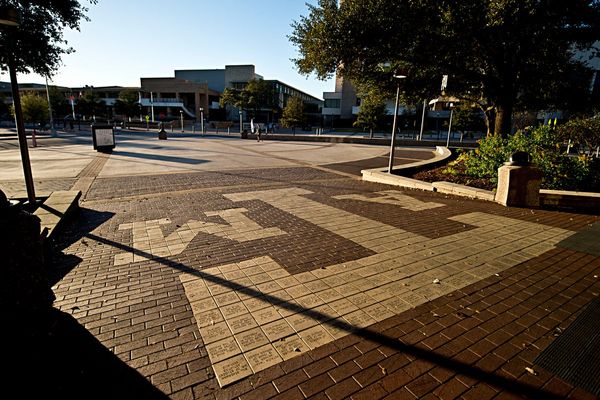
Amid the spectacular scenery of northern Israel, where the mountains roll away into views of Lebanon and Syria, it is deceptively quiet. At this time of year, the area is normally full of the last of the Jewish high holiday season’s tourists, making the most of the cooler weather to hike and go apple picking.
Instead, on Monday, the Israeli defence ministry gave an unprecedented order for residents of 28 villages and kibbutzim within 2km (1.25 miles) of the blue line that separates the country from Lebanon to evacuate south. The state is gearing up for the possible outbreak of hostilities with Hezbollah, the powerful Lebanese militia backed by Iran, at the same time as the new war with Hamas in the blockaded Gaza Strip.
The northern front, like the southern one before it, is emptying, after repeated rocket and missile attacks and border skirmishes in recent days with Hezbollah and Palestinian factions active in Lebanon. The mood across Israel is frantic, trust in the army and the state diminished.
For the communities living here, the evacuation order is not just about history repeating itself, or the occasional volley of rockets that set off air raid sirens. It is also frightening for its novelty. The odds of escalation with Hezbollah, Palestinian factions in the occupied West Bank – or even a head-on collision with Iran, after years of “shadow war” across the region – are higher than they have ever been.
Joe Biden’s decision to send a second aircraft carrier group to the eastern Mediterranean this week to bolster Israel’s defences and deter “any state or non-state actor” from entering the fray has essentially thrown down the gauntlet to Tehran, and much of the Israeli media is enthusiastic about launching a “pre-emptive attack” on Hezbollah.
“I don’t think it is a question of when the war will come here. I think it is already here,” said Emmanuela Kaplan, 34, from the Bar Am kibbutz, playing with her six-month-old baby in a makeshift playroom on a below-ground floor in their temporary home: a hotel in Tiberias, a tourist hub on the Sea of Galilee. Like 300,000 other Israelis, her husband, an army reservist, was called up for duty, and is now stationed in the south.
More than 1,300 people were killed on 7 October after the Palestinian militant group Hamas launched the most brazen attack in its history. Its forces burst through the security fence that hems in Gaza’s 2.3 million population before murdering their way through dozens of Israeli towns and kibbutzim and seizing 199 hostages to take back to Gaza.
In response, Israel has launched its largest ever bombing campaign on the besieged territory, killing at least 2,800 Palestinians and ordering more than a million people to leave their homes in the northern half of the strip, even though they have no safe place to go to. On Monday, despite reports that Cairo and international mediators had reached a deal to let foreign and dual nationals escape the war, and send desperately needed aid into Gaza, the only civilian crossing into Egypt’s Sinai desert remained shut.
Israel has not fought a two-front war since the surprise attack on Yom Kippur by Syria from the north and Egypt from the south 50 years ago this month. Both Hezbollah and Israel have been careful to avoid a return to the bloody summer war of 2006 that left swathes of Beirut, the Lebanese capital, in ruins.
But even before the fifth round of war in Gaza since Hamas seized control of the strip in 2007 erupted last week, tensions on the blue line, the UN-controlled boundary between Israel and Lebanon, reached their highest levels in years over the summer.
Metula, Israel’s northernmost town, was quiet on Monday afternoon; most of the residents had already put their belongings and pets into cars to go stay with family or in government-sponsored hotels outside the reach of short-range rocket fire. An elderly Israel Defence Forces (IDF) reservist at the main gate was jumpy after two reports of ground infiltrations by either Hezbollah or Palestinian factions.
At the main bus station in Qiryat Shemona, 6 miles (9km) south of the blue line, a trickle of civilians took large suitcases and boarded buses heading to Tiberias, and soldiers waited for transport going north. There is no evacuation order for the town, but the streets were deserted other than soldiers at checkpoints and military vehicles.

Only one place in the bus terminal was open: a burger joint where half a dozen locals had come for lunch and gallows humour. There had been a firefight between suspected Hezbollah fighters and IDF troops, visible from the western side of town the night before, and the group was discussing what may come next.
“We are not afraid of rockets; we are afraid of ground fighting. I have never seen something like that before,” said Inbal Ben Shitrit, 26. “If Hezbollah comes it will be much worse than Hamas … Hamas can send 1,000 men, Hezbollah can send 10,000. They have better weapons, and more support from Iran.”
Across most of the upper Galilee, vineyards and apple and cherry orchards have flourished since the 2006 war, but some places still bear the scars of the fighting.
In southern Lebanon, a Hezbollah stronghold, the war’s legacy is more obvious. Today, the country of 6 million, under the de facto control of the Islamist group, is in the grip of a dire financial crisis; its people are in no position to bear the brunt of another war. According to Michael Young, a Beirut-based analyst with the Carnegie Middle East Center, it is significant that most of the launches towards Israel so far have come from Sunni and Christian-majority areas; it seems Hezbollah is not yet willing to face a backlash from its Shia base.
“This isn’t like when we had to evacuate before. Before we could keep the business running. It wasn’t so intense,” said Denise Lili Gever, a 62-year-old originally from London. After making Bar Am her home for the last 25 years, she is also now staying in a Tiberias hotel.
“I can’t see myself ever going home now. There are people to the north who want to do to me what they did to people in the south. I knew we had enemies, but I didn’t think they would do something like this.”







